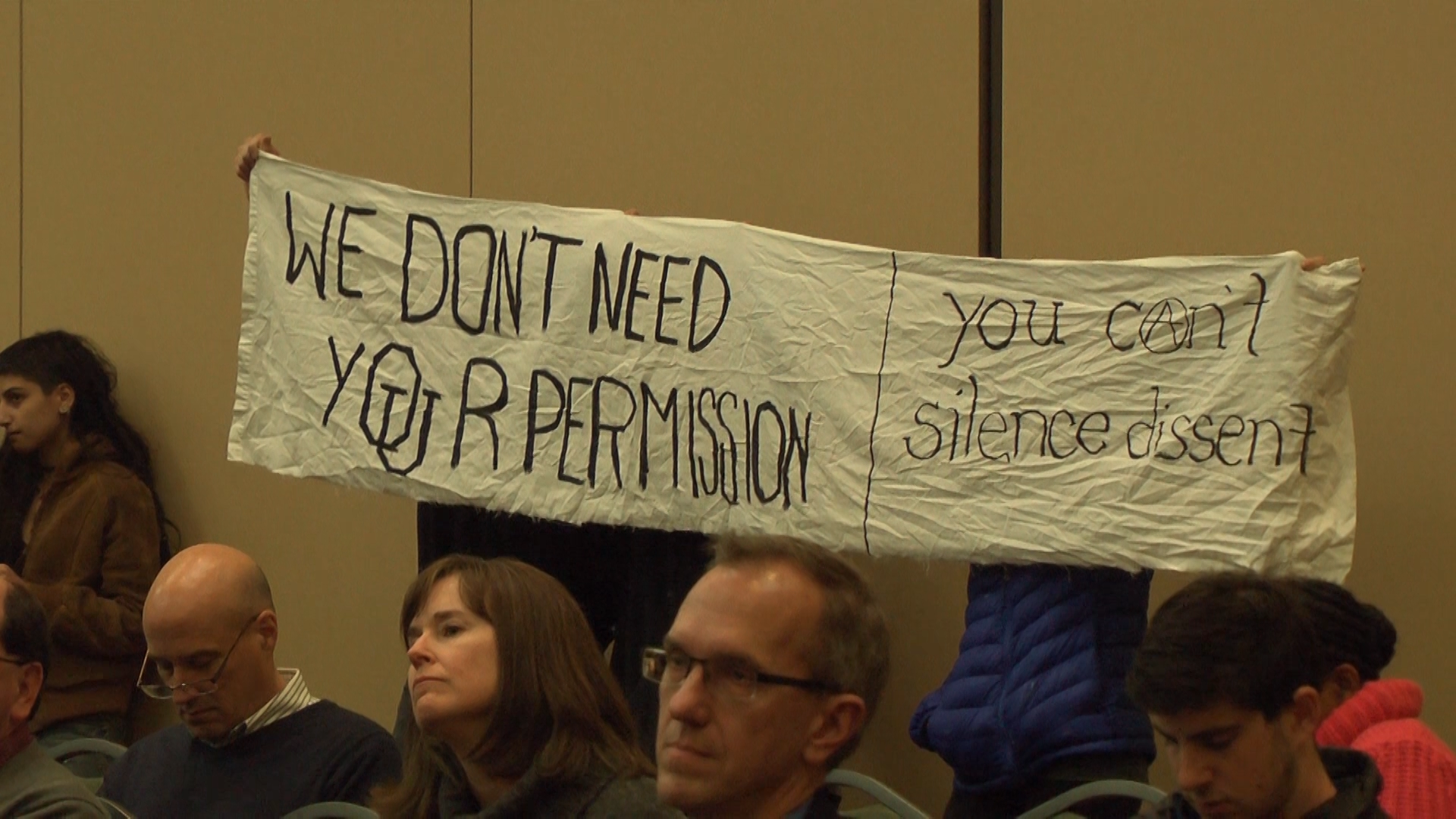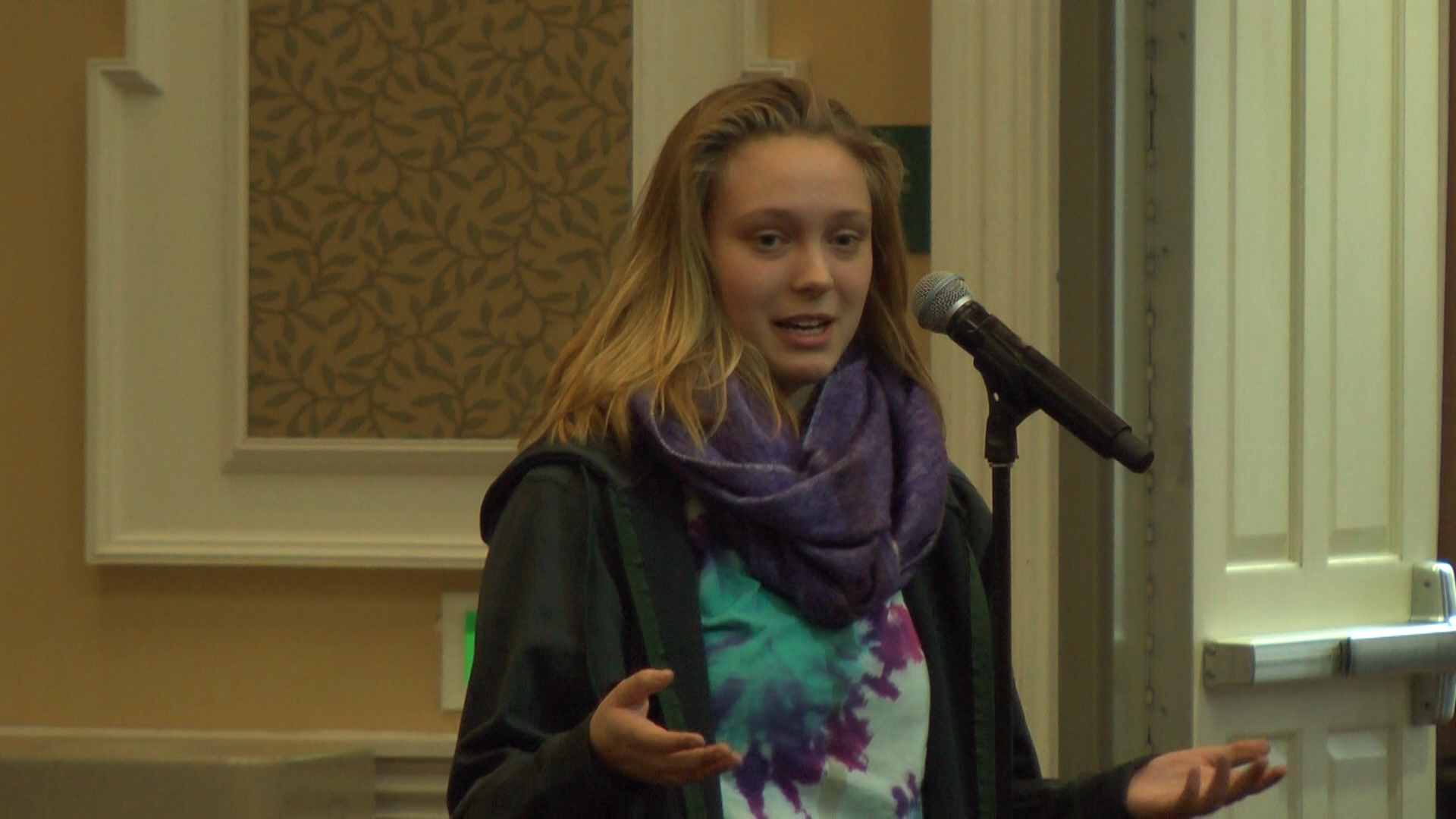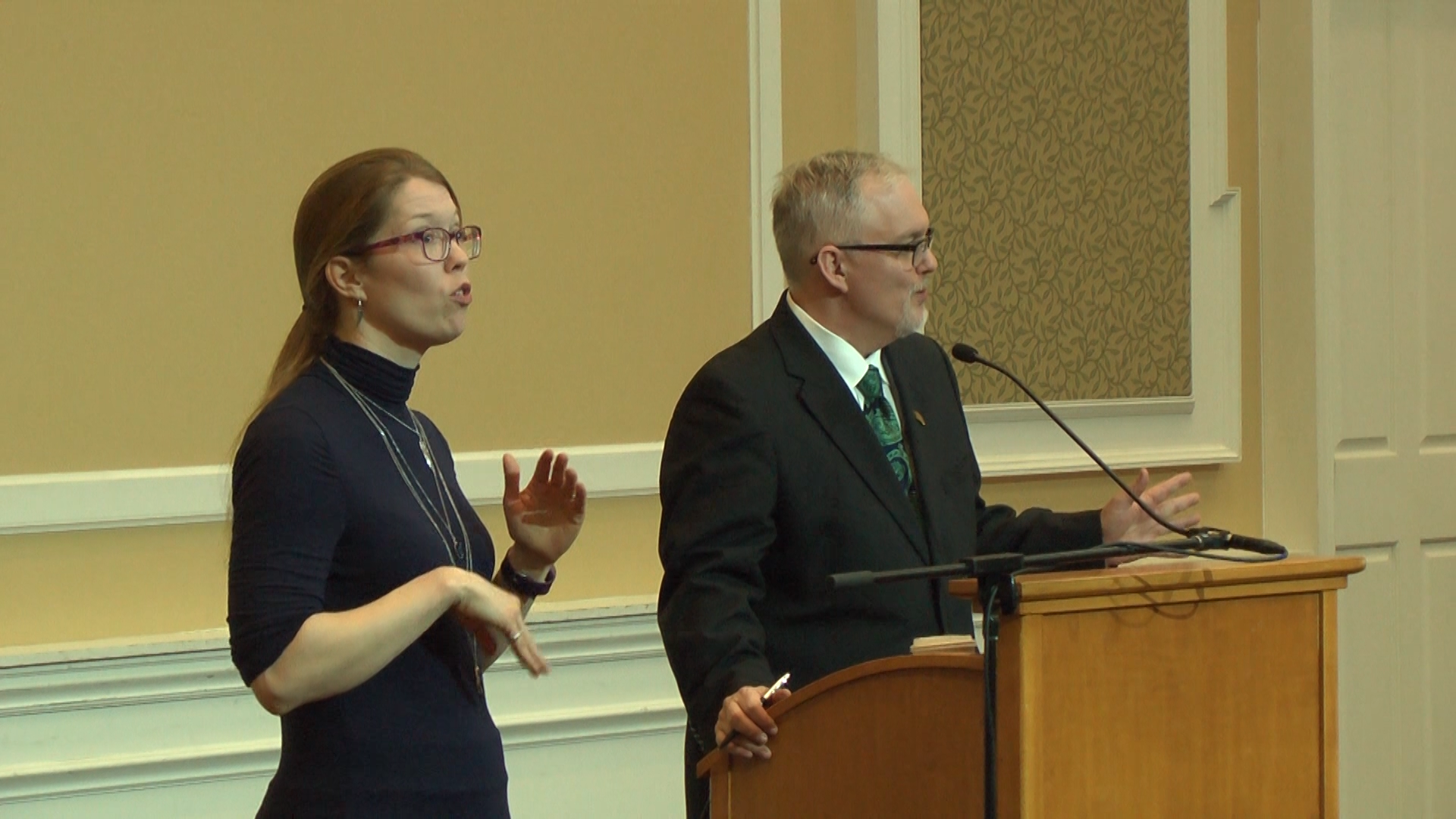Uncategorized
Opponents Voice Concerns on Curbing Campus Protests
By: Diamond Jeune
Posted on:

Angry students and faculty filled the Baker University Center ballroom Wednesday night voicing concerns about proposed rules restricting on-campus protests.
The open forum was organized by a presidential advisory group reviewing “28 considerations” created in the wake of a protest in 2017 where more than 70 protesters were arrested.
Students, staff and community members expressed their concerns about the proposed rules and their effect on free speech if adopted as policy.
Bernard Debatin, Scripps journalism professor and director of the Institute of Applied and Professional Ethics told the group the proposed policy does little to promote free speech.
“Right now it’s a policy that takes a public space, turns it into a private space and makes it impossible for people to express their views and their opinions.”
Hazel Goodburn, one of more than 70 students arrested in the 2017 sit-in at Baker Center, said the university has too much freedom to stop free speech. She said the only way to have a peaceful protest is to “not involve the police.”

Alex Wainwright a representative of “Students Defending Students” said restrictions related to the Baker sit-in are unnecessary.
“People sitting on the floor of the student center does not bother me,” she said. “I was able to access all the fire exits and it was never a problem.”
She said any policy should be consistent, citing a subsequent protest that created more obstacles, but no one was arrested.

The Presidential Policy Advisory Group was created to review public comments submitted to the University about the Interim Policy on Freedom of Expression and the use of outdoor space. The comments were reviewed in early January.
The forum is the first step in modifying a series of proposals, called considerations, that will eventually become recommendations to the president of Ohio University.
The consensus of those attending Wednesday night’s meeting was that any restrictions on free speech are not likely to stop future protests.

